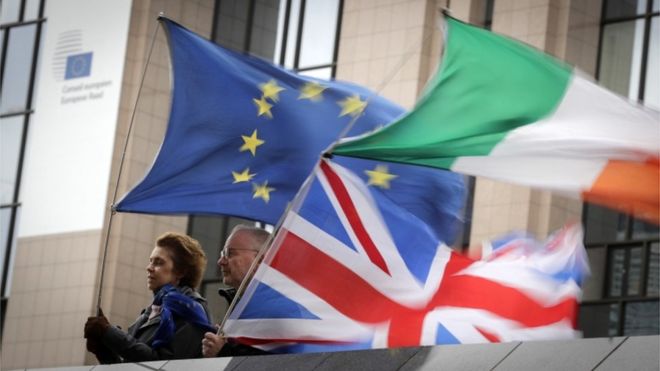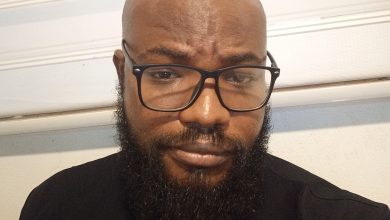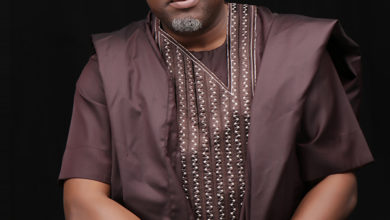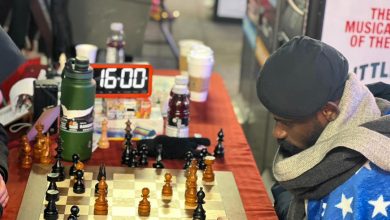
- EU and UK officials have resumed Brexit talks in the hope of reaching a deal that can be agreed by leaders at a key summit on Thursday.
EU and UK officials have resumed Brexit talks in the hope of reaching a deal that can be agreed by leaders at a key summit on Thursday.
Prime Minister Boris Johnson is expected to update the cabinet on the progress of the negotiations, which continued into the early hours.
On Tuesday, there were unconfirmed reports that an agreement was imminent.
But government sources have now told the BBC that the chances of it happening this week are “shrinking”.
The EU’s chief negotiator, Michel Barnier, will update the bloc on the state of the negotiations later when he briefs EU commissioners and ambassadors.
Mr Johnson is facing a race against the clock to reach a new Brexit deal before the two-day gathering of EU leaders.
Any deal will need to be published – along with a legal text – if the EU27 are to consider ratifying the withdrawal agreement at their summit.
That meeting is crucial because under legislation passed last month – the Benn Act – Mr Johnson is compelled to ask the bloc for a delay to Brexit if he does not get a new deal approved by MPs by Saturday.
The UK is due to leave the EU at 23:00 GMT on 31 October and the prime minister has repeatedly insisted this will happen, regardless of whether there is a deal or not.
But Brexit Secretary Stephen Barclay told MPs on Wednesday that Mr Johnson “will comply with the law” regarding the terms of any further extension.
In addition to the challenges of reaching an agreement with the EU this week, Mr Johnson also requires support from Conservative Brexiteers and Democratic Unionists if he is likely to get his deal through Parliament.
Such support rests on the UK’s proposed alternative to the Irish backstop – the measure aimed at preventing a hard border on the island of Ireland.
‘Key tests’
Former Brexit Secretary David Davis said the support of Tory eurosceptics could not be taken for granted and MPs would subject any agreement to “two or three key tests” – including whether it compromised the future of the United Kingdom.
“Quite a lot of Tory MPs will take their line from what the DUP say,” he told BBC Radio 4’s Today. “If the DUP say this is intolerable, that will be quite important.”
Former Northern Ireland secretary Owen Paterson has already expressed unease about reports of what could be in the agreement, telling the Sun that a customs border down the Irish Sea would be “unacceptable”.
But Iain Duncan Smith, another Brexiteer and former Conservative party leader, said there was a “genuine strong sense of goodwill” towards the prime minister’s efforts.
Most of his party – “bar a small core” – wanted to get a deal and he suspected they would want to back it, he told BBC Breakfast.
He denied reports in the Sun newspaper that he “exploded” at Downing Street officials during Tuesday’s meeting, saying he was in fact rushing to get on the London Underground to get back to his constituency.
If Mr Johnson gets an agreement, he is likely to ask MPs to back it and agree the next steps in an emergency sitting on Saturday.
Ministers have yet to confirm the sitting – which would be the first on a weekend for 37 years – will happen, saying it would depend on events in Brussels.
Meanwhile, a cross-party group of MPs has arrived in Brussels to make the case for another extension to the Brexit process even if Parliament approves a deal on Saturday.
One of the group, ex-Conservative minister Dominic Grieve, told Sky News the PM was trying to “bamboozle” everyone into thinking the process of ratifying any agreement in UK law could be concluded by 31 October when it “plainly cannot”.
And the Liberal Democrats have tabled an amendment to the Queen’s Speech, calling for any deal to be put to voters in a referendum.
Lib Dem leader Jo Swinson told BBC Breakfast the economic hit of Mr Johnson’s deal could be worse than the financial crash of 2008, and therefore it “should be up to the public to have their say”.



